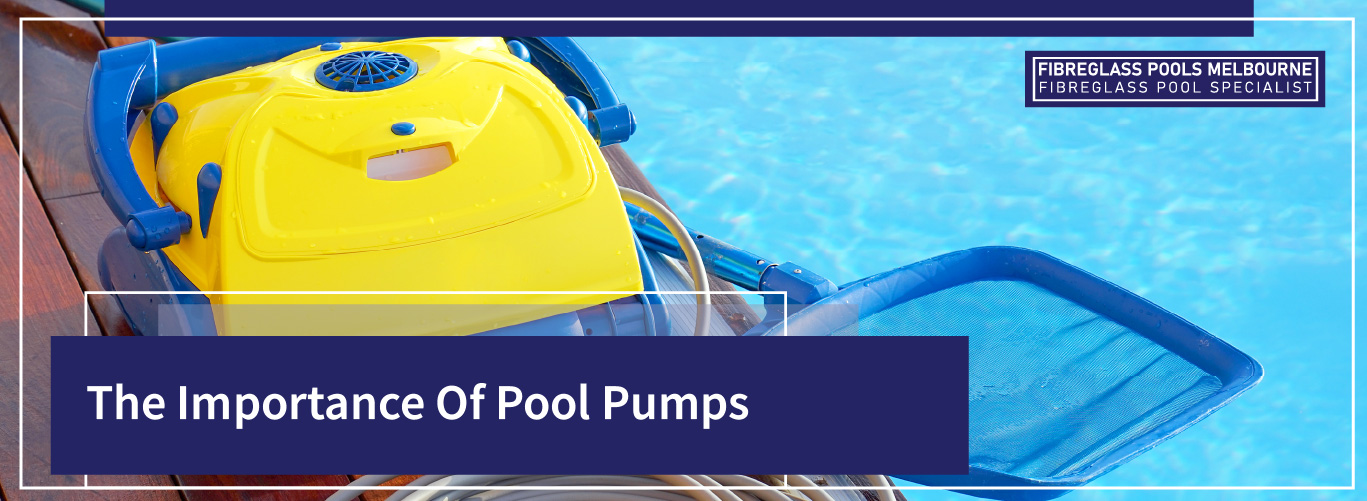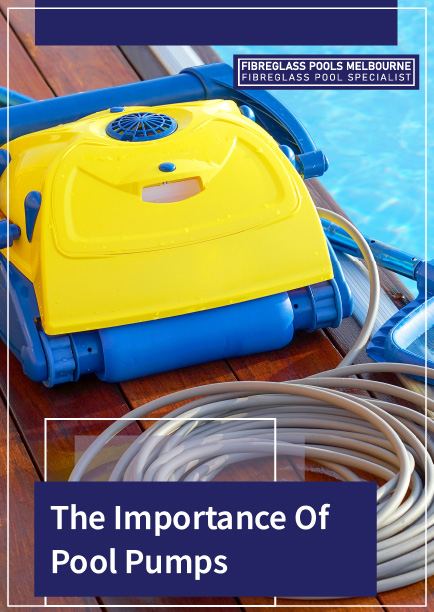The Importance of Pool Pumps
Pool pumps are the heart of any swimming pool's circulation system. These essential devices are responsible for moving water through the pool's filters, heaters, and chlorinators, thereby ensuring the water remains clean, safe, and swimmable. Without a properly functioning pool pump, a pool would quickly become a stagnant, unsanitary mess.

The Role of Pool Pumps
The primary function of a pool pump is to efficiently cycle the water in your swimming pool, ensuring that it is constantly moving and being properly filtered to remove debris, dirt, and other contaminants. By vigorously pushing the water through the filter, the pump helps to maintain a crystal-clear and inviting pool environment.Not only does the pool pump play a vital role in keeping the water clean, but it also helps to evenly distribute chemicals throughout the pool. This ensures that the water chemistry remains balanced and healthy, promoting a safe and enjoyable swimming experience for everyone.
In addition to its filtration and chemical distribution capabilities, the constant movement of water created by the pump helps to prevent the growth of algae. Algae thrives in stagnant water, but with the continuous circulation provided by the pump, it becomes much more difficult for algae to take hold and flourish.With its multifaceted benefits, a properly functioning pool pump is an essential component of any swimming pool, ensuring that the water is not only visually appealing but also safe and hygienic for all swimmers to enjoy.
Types of Pool Pumps
When it comes to pool pumps, there are various types available, each offering its own unique advantages. In this article, we will delve into the three main categories: single-speed pumps, dual-speed pumps, and variable-speed pumps.
Single-Speed Pumps
Single-speed pumps are the most common and affordable option. However, they only operate at one fixed speed. While they get the job done, they lack the flexibility and energy efficiency of other pump types.
Dual-Speed Pumps
For those seeking more flexibility and energy efficiency, dual-speed pumps are worth considering. These pumps offer both a high and low-speed option, allowing you to adjust the pump’s performance based on your needs. This versatility can lead to potential energy savings, making them a popular choice among pool owners.
Variable-Speed Pumps
Although variable-speed pumps may come with a higher upfront cost, they offer significant long-term energy savings. These pumps allow you to adjust the speed settings according to your specific requirements, optimising energy efficiency. While they may require a larger initial investment, their ability to adapt and save on energy costs make them a wise choice for many pool owners.

Choosing The Right Pool Pump
When choosing the right pool pump, you must consider several key factors. First, determine the size of your pool and the volume of water it holds, as this will influence the pump power you require. Next, consider the pump’s energy efficiency. Variable-speed pumps, for example, may have a higher initial cost but offer substantial energy savings over time. If you often adjust your pump speed, a variable-speed or dual-speed pump might be worth considering. Thirdly, consider the pump’s noise level; some pool owners may prefer a quieter pump. Finally, take into account the maintenance requirements of the pump and its longevity. Always ensure that the pump you choose is compatible with your pool’s existing filtration system. Balancing cost, efficiency, and durability will guide you in selecting the most suitable pump for your swimming pool.
Energy Efficiency
When it comes to pool pumps, energy efficiency is a crucial consideration. Opting for a high-quality and energy-efficient pool pump can have a profound impact on reducing energy consumption, which in turn translates to lower utility bills. But the benefits don’t stop there. Not only do energy-efficient pool pumps help you save money, but they also operate with less noise and have a longer lifespan compared to their less efficient counterparts.
Maintenance
Regular maintenance of pool pumps is of utmost importance to guarantee optimal efficiency and prolong their lifespan. This entails meticulous tasks such as diligently checking and thoroughly cleaning the pump basket, conducting thorough inspections for any potential leaks, and ensuring that the pump is operating at the correct speed and pressure. Additionally, regular servicing by a qualified professional can effectively identify and address any potential issues before they escalate into major problems, thereby ensuring the smooth operation of your pool pump and the enjoyment of your pool all year round.

Common Pool Pump Issues
Like any mechanical device, pool pumps can encounter a range of issues that can affect their operation and efficiency. Understanding these common issues can help you troubleshoot and possibly prevent more serious problems down the line.
Pump is Not Priming
If your pool pump is not priming, it means it’s failing to create a vacuum strong enough to circulate water properly. This issue can be caused by various factors, including blockages in the suction line, a cracked pump lid, or an improperly seated O-ring. A professional can easily diagnose and fix this issue.
Pump is Making Loud Noises
Loud noises from the pool pump can be quite alarming, and can indicate several issues. If you hear a screeching sound, it might be due to dry or worn-out bearings. On the other hand, a humming noise might indicate a faulty motor or capacitor. These issues require immediate attention and should be addressed by a professional.
Pump is Overheating
If your pool pump is getting excessively hot, it could be due to a lack of ventilation around the pump or a motor that’s running at high speed for extended periods. Regular maintenance checks can help prevent overheating by ensuring the pump’s speed setting is appropriate and that there’s sufficient ventilation around the pump.
Pump is Leaking
Pool pump leaks are often caused by a faulty shaft seal or worn-out O-ring. If not addressed, leaks can lead to serious issues like water damage or pump failure. Regular maintenance checks identify leaks early, enabling timely repairs and part replacements.
These are some common pool pump issues. Regular maintenance and professional servicing ensure smooth, efficient operation and longevity.
Conclusion
In short, pool pumps play a crucial role in maintaining a clean and healthy swimming pool. By choosing the right type of pump and ensuring regular maintenance is carried out, pool owners can enjoy a sparkling, safe, and enjoyable fibreglass swimming pool all year round. Remember, investing in a quality pool pump and maintaining it correctly is an investment in the health of your pool and the enjoyment of your swimming experience.
The Importance of Pool Pumps
Pool pumps are the heart of any swimming pool's circulation system. These essential devices are responsible for moving water through the pool's filters, heaters, and chlorinators, thereby ensuring the water remains clean, safe, and swimmable. Without a properly functioning pool pump, a pool would quickly become a stagnant, unsanitary mess.

The Role of Pool Pumps
The primary function of a pool pump is to efficiently cycle the water in your swimming pool, ensuring that it is constantly moving and being properly filtered to remove debris, dirt, and other contaminants. By vigorously pushing the water through the filter, the pump helps to maintain a crystal-clear and inviting pool environment.Not only does the pool pump play a vital role in keeping the water clean, but it also helps to evenly distribute chemicals throughout the pool. This ensures that the water chemistry remains balanced and healthy, promoting a safe and enjoyable swimming experience for everyone.
In addition to its filtration and chemical distribution capabilities, the constant movement of water created by the pump helps to prevent the growth of algae. Algae thrives in stagnant water, but with the continuous circulation provided by the pump, it becomes much more difficult for algae to take hold and flourish.With its multifaceted benefits, a properly functioning pool pump is an essential component of any swimming pool, ensuring that the water is not only visually appealing but also safe and hygienic for all swimmers to enjoy.
Types of Pool Pumps
When it comes to pool pumps, there are various types available, each offering its own unique advantages. In this article, we will delve into the three main categories: single-speed pumps, dual-speed pumps, and variable-speed pumps.
Single-Speed Pumps
Single-speed pumps are the most common and affordable option. However, they only operate at one fixed speed. While they get the job done, they lack the flexibility and energy efficiency of other pump types.
Dual-Speed Pumps
For those seeking more flexibility and energy efficiency, dual-speed pumps are worth considering. These pumps offer both a high and low-speed option, allowing you to adjust the pump’s performance based on your needs. This versatility can lead to potential energy savings, making them a popular choice among pool owners.
Variable-Speed Pumps
Although variable-speed pumps may come with a higher upfront cost, they offer significant long-term energy savings. These pumps allow you to adjust the speed settings according to your specific requirements, optimising energy efficiency. While they may require a larger initial investment, their ability to adapt and save on energy costs make them a wise choice for many pool owners.

Choosing The Right Pool Pump
When choosing the right pool pump, you must consider several key factors. First, determine the size of your pool and the volume of water it holds, as this will influence the pump power you require. Next, consider the pump’s energy efficiency. Variable-speed pumps, for example, may have a higher initial cost but offer substantial energy savings over time. If you often adjust your pump speed, a variable-speed or dual-speed pump might be worth considering. Thirdly, consider the pump’s noise level; some pool owners may prefer a quieter pump. Finally, take into account the maintenance requirements of the pump and its longevity. Always ensure that the pump you choose is compatible with your pool’s existing filtration system. Balancing cost, efficiency, and durability will guide you in selecting the most suitable pump for your swimming pool.
Energy Efficiency
When it comes to pool pumps, energy efficiency is a crucial consideration. Opting for a high-quality and energy-efficient pool pump can have a profound impact on reducing energy consumption, which in turn translates to lower utility bills. But the benefits don’t stop there. Not only do energy-efficient pool pumps help you save money, but they also operate with less noise and have a longer lifespan compared to their less efficient counterparts.
Maintenance
Regular maintenance of pool pumps is of utmost importance to guarantee optimal efficiency and prolong their lifespan. This entails meticulous tasks such as diligently checking and thoroughly cleaning the pump basket, conducting thorough inspections for any potential leaks, and ensuring that the pump is operating at the correct speed and pressure. Additionally, regular servicing by a qualified professional can effectively identify and address any potential issues before they escalate into major problems, thereby ensuring the smooth operation of your pool pump and the enjoyment of your pool all year round.

Common Pool Pump Issues
Like any mechanical device, pool pumps can encounter a range of issues that can affect their operation and efficiency. Understanding these common issues can help you troubleshoot and possibly prevent more serious problems down the line.
Pump is Not Priming
If your pool pump is not priming, it means it’s failing to create a vacuum strong enough to circulate water properly. This issue can be caused by various factors, including blockages in the suction line, a cracked pump lid, or an improperly seated O-ring. A professional can easily diagnose and fix this issue.
Pump is Making Loud Noises
Loud noises from the pool pump can be quite alarming, and can indicate several issues. If you hear a screeching sound, it might be due to dry or worn-out bearings. On the other hand, a humming noise might indicate a faulty motor or capacitor. These issues require immediate attention and should be addressed by a professional.
Pump is Overheating
If your pool pump is getting excessively hot, it could be due to a lack of ventilation around the pump or a motor that’s running at high speed for extended periods. Regular maintenance checks can help prevent overheating by ensuring the pump’s speed setting is appropriate and that there’s sufficient ventilation around the pump.
Pump is Leaking
Pool pump leaks are often caused by a faulty shaft seal or worn-out O-ring. If not addressed, leaks can lead to serious issues like water damage or pump failure. Regular maintenance checks identify leaks early, enabling timely repairs and part replacements.
These are some common pool pump issues. Regular maintenance and professional servicing ensure smooth, efficient operation and longevity.
Conclusion
In short, pool pumps play a crucial role in maintaining a clean and healthy swimming pool. By choosing the right type of pump and ensuring regular maintenance is carried out, pool owners can enjoy a sparkling, safe, and enjoyable fibreglass swimming pool all year round. Remember, investing in a quality pool pump and maintaining it correctly is an investment in the health of your pool and the enjoyment of your swimming experience.


